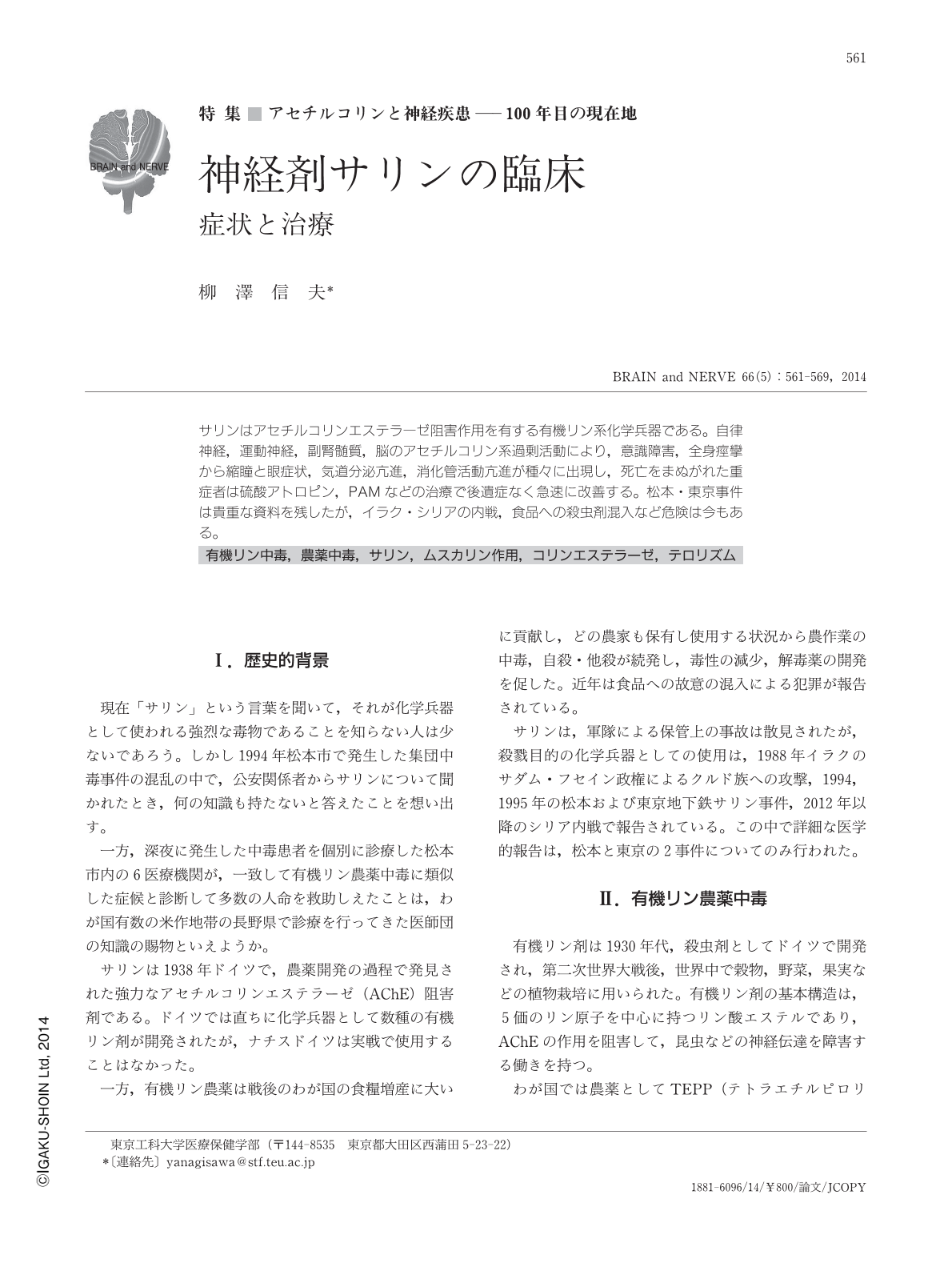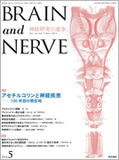Japanese
English
- 有料閲覧
- Abstract 文献概要
- 1ページ目 Look Inside
- 参考文献 Reference
サリンはアセチルコリンエステラーゼ阻害作用を有する有機リン系化学兵器である。自律神経,運動神経,副腎髄質,脳のアセチルコリン系過剰活動により,意識障害,全身痙攣から縮瞳と眼症状,気道分泌亢進,消化管活動亢進が種々に出現し,死亡をまぬがれた重症者は硫酸アトロピン,PAMなどの治療で後遺症なく急速に改善する。松本・東京事件は貴重な資料を残したが,イラク・シリアの内戦,食品への殺虫剤混入など危険は今もある。
Abstract
Organic phosphate pesticides were used worldwide after World War II and experiences on poisoning and treatment have been accumulated. An organic phosphate "nerve agent" Sarin was used in two terrorist attacks in Japan in the 1990s. Sarin effects on humans were well documented in these two incidents. Sarin gas inhalation caused instantaneous death by respiratory arrest in several victims in Matsumoto. Severely injured victims presenting with coma and generalized convulsion were resuscitated and recovered rapidly without sequelae. Miosis and blurred-dark vision, ocular pain, copious secretions from respiratory and gastrointestinal tract (muscarinic effects), and headache were common in severely to slightly affected victims. Plasma cholinesterase (ChE) activity decreased in parallel with the severity of signs and symptoms in victims. Oximes, atropine sulphate, diazepam, and ample intravenous infusion were effective treatments. Follow-up examinations on victims were conducted up to 10 years in Matsumoto, and 5 years in Tokyo. No neurological sequelae or abnormalities were observed after 1 year, except for a few EEG abnormalities or delay in sensory nerve conduction velocity. Posttraumatic stress disorder (PTSD) was observed in several of the victims in the 5-year follow up, irrespective of the severity of poisoning at Matsumoto. Psychological symptoms continue in victims of both incidents.

Copyright © 2014, Igaku-Shoin Ltd. All rights reserved.


